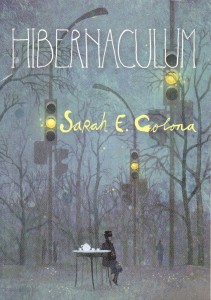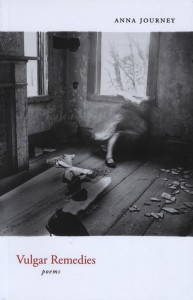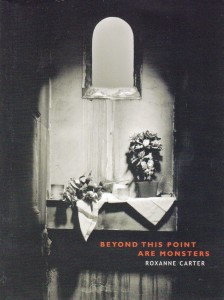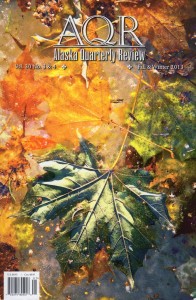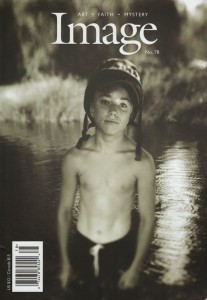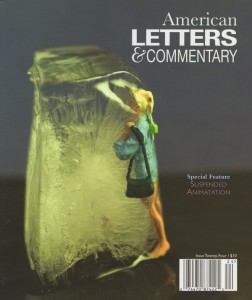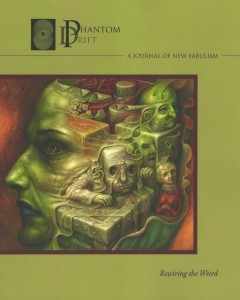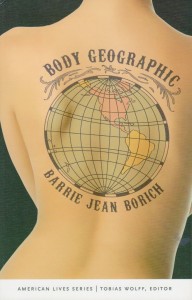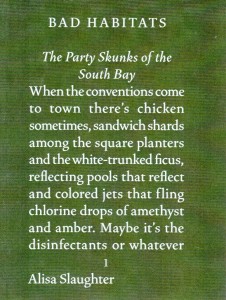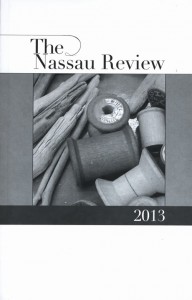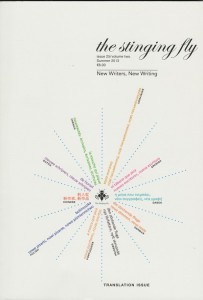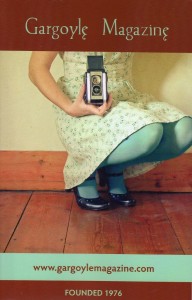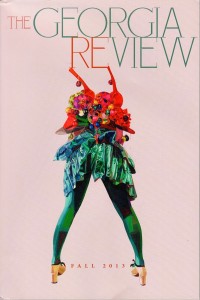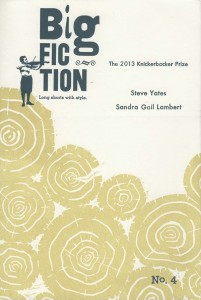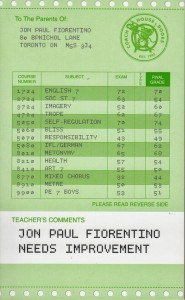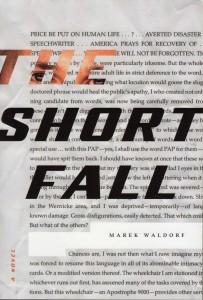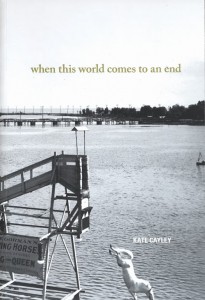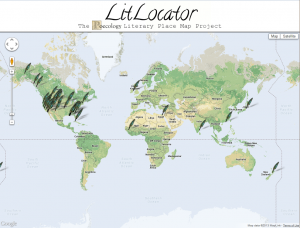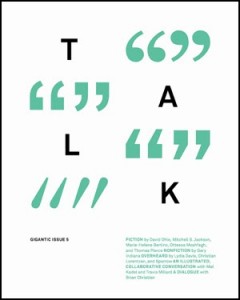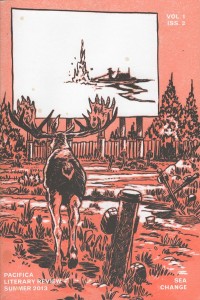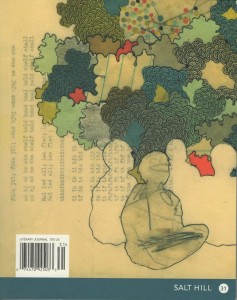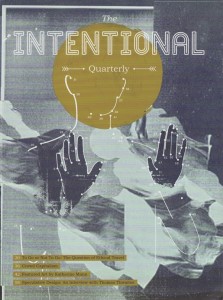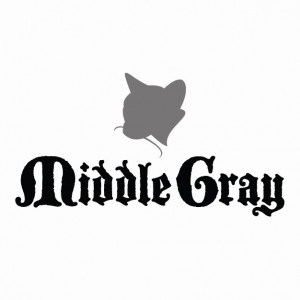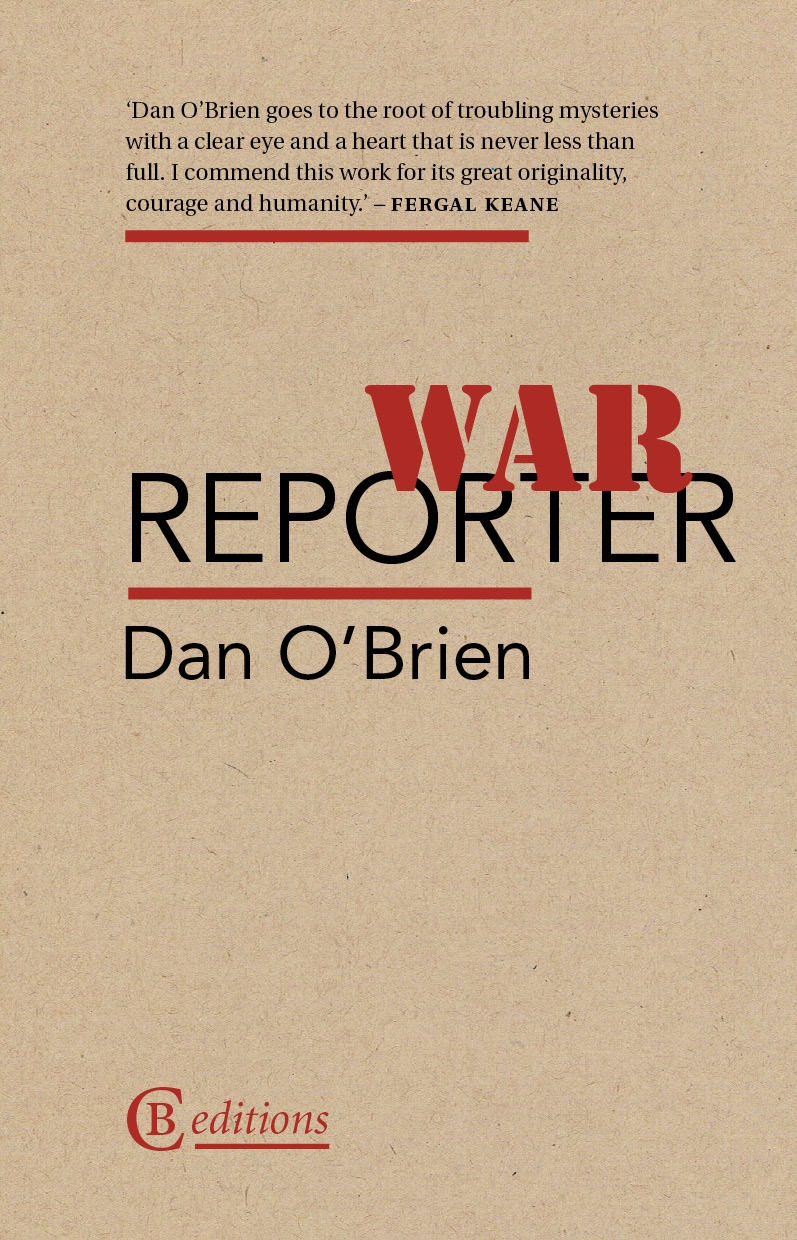 War Reporter tells a compelling story of war, conflict, and torment of the human spirit through a collection of poems based upon Dan O’Brien’s research, email exchanges, and interviews with photojournalist Paul Watson. Often the poems’ narrator is “The War Reporter Paul Watson on […]”. One of the most brilliant devices used in these poems is the heavy use of imagery. This comes as no surprise as these poems are being told from a photojournalist’s perspective. Very few poems from Watson’s narration read as his thoughts on a particular subject as much as they read like a series of snapshots through his photojournalistic lens to show his story. An example of this comes from “The War Reporter Paul Watson Considers the Peacekeepers”: Continue reading “War Reporter”
War Reporter tells a compelling story of war, conflict, and torment of the human spirit through a collection of poems based upon Dan O’Brien’s research, email exchanges, and interviews with photojournalist Paul Watson. Often the poems’ narrator is “The War Reporter Paul Watson on […]”. One of the most brilliant devices used in these poems is the heavy use of imagery. This comes as no surprise as these poems are being told from a photojournalist’s perspective. Very few poems from Watson’s narration read as his thoughts on a particular subject as much as they read like a series of snapshots through his photojournalistic lens to show his story. An example of this comes from “The War Reporter Paul Watson Considers the Peacekeepers”: Continue reading “War Reporter”
NewPages Blog
At the NewPages Blog readers and writers can catch up with their favorite literary and alternative magazines, independent and university presses, creative writing programs, and writing and literary events. Find new books, new issue announcements, contest winners, and so much more!
Paper Dreams
In an opening piece (originally written in 2008) in Paper Dreams, Jill Allyn Rosser gives us “Reasons for Creating a New Literary Magazine,” beginning with, “There probably hasn’t been a new one created in the past six-and-a-half days.” Through this sarcastic piece, Rosser actually lists many reasons why you shouldn’t begin a new magazine. Among my favorites is, “There are serious, good, seriously good writers whose work is being completely ignored, and you are so nattily optimistic as to believe that literate people are going to read them in your new Yet Another Literary Magazine when they already have piles and unread piles of them . . .” Clearly, literary magazines are cropping up everywhere. And while there is an abundance of them, they are important in the literary culture. Continue reading “Paper Dreams”
Spread the word!
New Stories from the Midwest 2012
The editors selected twenty stories from more than three hundred submitted by literary journals, magazines, and small presses and arranged them to make up New Stories from the Midwest 2012. Editors Jason Lee Brown and Shanie Latham explain that the goals of the series are to “celebrate an American region that is often ignored in discussions about distinctive regional literature and to demonstrate how the quality of fiction from and about the Midwest (Illinois, Indiana, Iowa, Kansas, Michigan, Minnesota, Missouri, Nebraska, North Dakota, Ohio, South Dakota, and Wisconsin) rivals that of any other region.” In the introduction, Guest Editor John McNally, born and raised in the Chicago suburb of Burbank, writes: “If all politics is local, as Tip O’Neill once famously declared, then so is all fiction. The best fiction, it seems to me, is always strongly rooted in place.” These stories are linked by place, specifically the Midwest, where fierce winds blow in off the plains, corn stalks tower in ubiquitous rolling fields, snow begins before Thanksgiving and lasts long into spring, and ice freezes summer lakes. While the landscape and weather provide the settings and common themes for these stories, their universal appeal lies in the characters whose lives inhabit them. Continue reading “New Stories from the Midwest 2012”
Spread the word!
Swoop
“If it could speak it would offer / you excess; it would / offer you more.” Continue reading “Swoop”
Spread the word!
The Consummation of Dirk
When I began to write this I suddenly realized that in order to review Jonathan Callahan’s debut collection of short stories, The Consummation of Dirk, I’d have to invent a whole new set of adjectives. The writing contained within these covers is imaginative, wrought, out-of-the-box, and perhaps bordering on the avant-garde, all of which have been said about many works of literature and which, in the long run, tell you little. Yet, while reading his stories, I had a sense of the traditional narrative undergoing a transformation—I pictured Bruce Banner changing into the Hulk. These are stories trying to punch their way out of the bag. They are written with some edge and share varying degrees of foreboding. Continue reading “The Consummation of Dirk”
Spread the word!
Render
Rebecca Gayle Howell’s debut collection was selected by Nick Flynn for the 2012 Cleveland State University Poetry Center First Book Prize. In his foreword, Flynn writes: “To enter into these poems one must be fully committed, as the poet is, to seeing this world as it is, to staying with it, moment by moment, day by day.” Continue reading “Render”
Spread the word!
The Year of What Now
The poems in The Year of What Now by Brian Russell can catch an unsuspecting poetry reader off-guard, much like a sudden illness or the meeting of your future significant other. Within the opening two lines of the book’s first poem, we discover we will not be eased into this experience: “your hands were stained the urgent shade / of blood when I found you.” As readers continue, they will uncover sections of humor, as well as soft assuring language and soothing music within the poems. Every poem is written without any punctuation marks, except apostrophes. This tactic, although noticeable, doesn’t interrupt the flow or create uncertainty and confusion; instead, it makes the message clearer, helps readers directly connect with the narrator’s thoughts and share the narrator’s sensation of uncertainty. Readers are opened to accept the music of the moment with comforting sounds like “clack of keys,” repetition and rhythms like, “born from smoldering / Rome came crawling,” and unexpected rhymes like: Continue reading “The Year of What Now”
Spread the word!
Dwelling in Possibility
It’s hard to imagine a trope of Americana more ingrained in the public conscientiousness than purposeful living in New England. In Dwelling in Possibility: Searching for the Soul of Shelter, Howard Mansfield takes Thoreau’s call to “live deliberately” as a demand to examine the nature of shelter and the circumstances that create a home. These themes, he argues, are how people can engage with their culture and how they live in their spaces. Dwelling in Possibility, one could say, is Mansfield’s answer to “putting to rout all that is not life” (Walden-Pond-style) by calling direct and specific attention to what he sees as humanity’s un-purposeful living in their dwellings. Continue reading “Dwelling in Possibility”
Spread the word!
Scent of Darkness
This novel’s title and cover image, of reddish curls of smoke, inspires assumptions that another vampire story is lurking in our midst, quietly digging its fangs on an ever-crowded genre dominated by pale, gorgeous characters, 500-year-old blood-suckers whose sense of smell defies any human standard of keenness. In the novel’s first paragraph, the narrator’s revelation of a loss—of “something very special . . . running through [her] veins like a blessing, or a plague”—appears to support that impression, that perhaps she is referring to properties in her blood, of being trapped in the vacuum of eternity itself. Even the narrator’s name—Eva—has strong kinship to blood, old blood, the origin of blood, fallen, cast away from innocence, purity. It’s hard to say where our impression of vampires eventually fades in the story; Margot Berwin’s canvas is filled with shadows, quiet rooms with creaky doors, cloudy skies, and lonely roads, whether Eva is in the mountaintop town of Cyril, New York where her grandmother Louise lives, or in the tropical weather of New Orleans, where Eva shacks up with her boyfriend Gabriel after Louise—an aromata, a master creator of scent—passes away. Continue reading “Scent of Darkness”
Spread the word!
Book Covers: Halloween Edition
In honor of Halloween, here’s today’s book cover picks, which have an otherworldly air about them.
Hibernaculum, poetry by Sarah E. Colona, Gold Wake Press
from “Consulting the Winds”:
As any child of winter, she knew
The arts for summoning:
How to grip a knife for swift kills;
To trace runes with blood-slick fingers;
To ring fires with stones—herself with salt.
Vulgar Remedies, poetry by Anna Journey, Louisiana State University Press
from “Dermatographia”:
Somewhere there’s a dress that clings
like a Jackson night, late summer—strapless,
black crepe, a crux where the past
lingers like a Mississippi
vowel drawn out of itself
in my mother, 1963.
Beyond This Point There are Monsters, fiction by Roxanne Carter, Sidebrow Books
Spread the word!
Sean Johnston On Writing
I have always known there was something special about a community of writers, and I have found the support of many writing communities beneficial. But I have always been troubled by publicly identifying as a writer. This unease has been with me my whole life . . .
. . . Nothing in my life is clean. It is unclean not in the way of some disease, but in the way of an unmade bed and books unfinished. I can untidy. I can’t tidy. I am useless. I have made no clean breaks in my life. What clarity I find, I try to mark down, and sometimes it stays clear, but often it doesn’t.
I respect that same effort in the work of others, but I prefer to be alone when I discover it.
Spread the word!
Afghan Americans: Diptychs
Andrea Bruce gives photographs with narratives in a special feature in the latest Alaska Quarterly Review called “Afghan Americans: Diptychs.” It’s a beautiful collection of photographs of Afghan Americans with quotes from them about bridging a link between their two cultures. “As an American, when I go to America, I try to get people to think of Afghans in a good way,” says Mina Sherzoy. “And as an Afghan, when I go to Afghanistan, I want the Afghans to think of the Americans in a good way. I’ve always tried to make the connections. I want to be a bridge.”
In the introduction to the selection, Bruce says that, “Each diptych explores a unique and complex connection between two countries and cultures seemingly at war, every day, embodied in individual Afghan Americans.” She emphasizes that she needed “to show that Iraqis weren’t all that different than our readers.” She goes on to say: “I need to show that they, too, love their children. They care about education. They have to deal with traffic, and health care, in surprisingly similar ways that Americans do. Intimacy was my tool.”
It really is an important section within a larger issue of Alaska Quarterly Review that also contains fiction, nonfiction, and poetry selections.
Spread the word!
Glimmer Train August Short Story Award Winners
Glimmer Train has just chosen the winning stories for their August Short Story Award for New Writers. This competition is held quarterly and is open to all writers whose fiction has not appeared in a print publication with a circulation greater than 5000. The next Short Story Award competition will take place in November. Glimmer Train’s monthly submission calendar may be viewed here.
1st place goes to Samsun Knight of Brookline MA. He wins $1500 for “Family of Four” and his story will be published in Issue 92 of Glimmer Train Stories. This is Samsun’s first off-campus print publication. [Pictured. Photo credit: Grace Lu.]
2nd place goes to Tamar Jacobs of Akron, OH. She wins $500 for “The Wall Between.” This story will also be published in an upcoming issue of Glimmer Train Stories, increasing her prize to $700.
3rd place goes to Julie Zapoli of Ketchum, ID. She wins $300 for “The Last to Know.”
A PDF of the Top 25 winners can be found here.
Deadline soon approaching for Family Matters: October 31
Glimmer Train hosts this competition twice a year, and first place has been increased to $1500 plus publication in the journal. It’s open to all writers for stories about families of all configurations. Most submissions to this category run 1200-5000 words, but can go up to 12,000. Click here for complete guidelines.
Spread the word!
Job: Managing Editor @ Drunken Boat
“Drunken Boat, one of the world’s oldest electronic journals of the arts and the winner of a South by Southwest Web Award, is looking for a new Managing Editor. We have a fabulous staff in place and very clear directions on how to proceed. What we are looking for is someone who is dedicated, meticulous to detail, capable of working collaboratively with many people and helping us keep our editorial deadlines. The position offers the possibility of a modest stipend and we need at least a one-year commitment from someone. The Managing Editor would also have interns to help him/her out with our publishing goals. Applicants with familiarity with working online and working in publishing are preferred. This is a great opportunity to be involved in an independent publisher that publishes books and a highly-acclaimed journal and that reaches over a hundred thousand unique visitors annually worldwide. If you are interested, please send a short cover letter and CV to ravi-at-drunkenboat.com.”
Spread the word!
Lit Mag Covers :: Picks of the Week
Photography for this cover of Image comes from Fritz Liedtke, titled “Swimming Hole Boys” from the series Welcome to Wonderland. There is more of his work inside.
American Letters & Commentary‘s new issue has a special feature on Suspended Animation. The cover features a piece of Matthea Harvey’s ice cube art, with more on the back cover and inside.
Cover art for issue 3 of Phantom Drift is “Hypnagogia” by Chris Mars. It definitely has a creep look; I can’t stare for too long.
Spread the word!
Book Covers :: Picks of the Week :: October 24, 2013
Here are some of the book covers I found intriguing while scanning the shelves this week:
The Body Geographic, nonfiction by Barrie Jean Borich, University of Nebraska Press
Between Chicago and Minneapolis Bonnie Jean Borich maps her own Midwest, a true heartland in which she measures the distance between the dreams and realities of her own life, her family’s, and her fellow travelers’ in the endless American migration. Covering rough terrain—from the hardships of her immigrant ancestors to the travails of her often-drunk young self, from the changing demographics of Midwestern cities to the personal transformations of coming out and living as a lesbian—Body Geographic is cartography of high literary order, plotting routes, real and imagined, and putting an alternate landscape on the map.
from “Senior Coffee”:
…I want her to have a life
like mine, one lived, not for poetry but through poetry.
Everything—a car starting, bird song, the gurgling
of a coffeepot, the whirr of a fan, the whisper of lovers,
the silly noises babies make, the wisdom of the books
the mighty dead have written—all of that steps easily into
poetry and makes itself at home there. Poetry and coffee:
now there’s a combination for you.
Look for new book reviews on November 1!
Spread the word!
Ekphrastic Issue of The Nassau Review
The current issue of The Nassau Review is a special ekphrastic themed issue. “One art is all art: all art is one art,” writes Editor Christina M. Rau. “In keeping with this mantra, I wondered if other poets would agree that ekphrasis could relate to more than writing a description about one piece of art. I wondered how prose writers would approach this idea. What I found was simple. Artists find inspiration in all forms of creativity.” The issue also features the winners of the 2013 Writer Award for Prose and Poetry: Wayne Scheer’s “The Love Song of Langley Moran” and Jennifer Woodworth’s “Crows Over Wheatfield” (after Vincent Van Gogh’s last painting).
Spread the word!
Join the Freedom of Expression Wall
Join Sampsonia Way’s Freedom of Expression Wall:
“What does free speech mean to you? Join writers, journalists, activists and people from around the world in creating a public freedom of expression wall. Get on the wall! Make a hand-written sign, take a picture, and post it on the wall by submitting to [email protected] with the subject line Freedom of Expression Wall. Please include your name and location, and make sure your picture shows a printed or hand-written sign.”
Sampsonia Way is a free online magazine on literature, free speech and social justice.
Spread the word!
Light Back On
Light Quarterly, “it’s been America’s only journal of light verse for more than 20 years,” has returned! After announcing their final print issue in September of 2012, Light Quarterly has resurfaced as Light, an online journal publishing twice yearly. Founded by John Mella (December 12, 1941 – April 16, 2012), the publication continues in the tradition to “restore humor, clarity, and pleasure to the reading of poems” under the guidance of Editor Melissa Balmain and Managing Editor Kevin Durkin. The publication is available free online with an archive of links to past issue sample pages. Light can also be found on Facebook where readers can keep up with the Poem of the Week. Welcome back Light!
Spread the word!
Job: Asst Prof Writing in New Media (CT)
Institution: Eastern Connecticut State University
Position: Assistant Professor: Writing in New Media
Tenure Track
Qualifications: Ph.D. or ABD in English
The successful candidate must have awareness of and sensitivity to the educational goals of a multicultural/first generation student population and a strong interest in teaching both discipline-specific and liberal arts core courses at all levels. *Position Description:* Responsibilities will include teaching existing introductory and advanced courses in rhetoric, composition, literary studies, and/or creative writing and to develop new courses in line with teaching and research interests. These may include (but are not limited to) new media writing, new media criticism, and electronic publishing. Practical experience working with web-based applications and genres is essential, as is up-to-date knowledge of Internet culture. Additional expectations include student advising, service to the department and university committees, as well as an active research agenda.
Please send letter of application, CV, teaching philosophy and three letters of recommendation as email attachments (PDF or Word) to englishsearch-at-easternct.edu
Review of applications will begin November 15, 2013.
To learn more about posted positions and application procedures at Eastern Connecticut State University, please go to:
http://www.easternct.edu/humanresources.html
Eastern Connecticut State University, the state’s public liberal arts university serving approximately 5,400 students, offers a wide range of undergraduate majors in the arts and sciences and professional studies, as well as selected graduate programs. Located in historic Windham County in the heart of eastern Connecticut, the University is midway between New York City and Boston, and only a short drive from Hartford, the state capital. Eastern Connecticut State University is an AA/EEO employer. Women, members of protected classes, and people with disabilities are encouraged to apply.
Spread the word!
Job :: CW at EMU
Assistant Professor of Creative Writing
The Department of English Language and Literature at Eastern Michigan University (EMU) invites applications for a tenure-track Assistant Professor position in Creative Writing. The Creative Writing Program emphasizes interdisciplinarity and includes both undergraduate and MA studies. We are seeking a literary writer who works in new media and/or digital arts and is capable of teaching courses that address contemporary aesthetic practices engaged with digital environments in multi-discipline contexts. Candidates must hold a graduate degree, and demonstrate a significant publication record, evidence of excellence in teaching, and promise of continuing literary engagement. Teaching load is three courses per semester, with possible course reductions.
The Department is searching for someone who demonstrates collegiality among faculty, support staff, and students and who works well within a climate of shared governance. The successful candidate will demonstrate a commitment to teaching; facilitate and value student development; generate both literary and scholarly work; and participate in professional and community organizations.
Known for its congenial and collaborative English Department, EMU is located in the Ann Arbor-Detroit area. The school is a culturally diverse learning and teaching community set in a small city environment, amidst a major metropolitan area, that attracts students from Metro Detroit, across the state, nationally, and internationally. Internal grant opportunities are available.
To apply, go to https://www.emujobs.com and click on the “View/Apply for Faculty and Administrative Positions.” As a part of the application, all applicants must provide a cover letter and CV. Additional materials only upon request. Questions about this position may be sent to the Chair of the Search Committee rhalpern-at-emich.edu.
Screening of candidates will begin on October 25, with priority given to applications received by that date.
Interviews will be conducted at the MLA Convention in Chicago in 2014.
Spread the word!
Alaska Quarterly on The New Yorker
Last week, Alaska Quarterly Review received recognition from The New Yorker Magazine. They published on their website a major excerpt from AQR’s fall and winter 2013 edition: 16 pages from Andrea Bruce’s “Afghan Americans.” Nice recognition all around.
Spread the word!
DVQ Seeks Editor
The online lit mag Diverse Voices Quarterly is looking for a first-round reader.
Position requirements:
–BA in English or similar field (or you’re currently enrolled in college for this degree)
–Interest in creative writing (poetry, fiction, and creative nonfiction)
–Interest in publishing field
Read some sample issues. Send your resume with a cover letter, stating three favorite pieces (one from each genre) and the author’s name of each piece and why you like them.
Once they go over resumes/cover letters, a follow-up conversation either by phone and/or in person (New Jersey) will take place with those they see most fit.
Spread the word!
Lit Mag Covers :: Picks of the Week
The Stinging Fly, from Dublin, puts forth this special translation issue, listing the names of the pieces in their original language, all spanning out in a web from the fly logo in the middle. Included are translations from French, Dutch, Chinese, Polish, Portuguese, Swedish, German, Greek, and more.
Gargoyle Magazine‘s second issue for 2013 features cover photography by Cassia Beck and includes almost 500 pages of nonfiction, fiction, poetry, and artwork.
The Georgia Review‘s cover definitely had me staring for a while. Celeste Rapone’s Blue Dress is a painting done by oil on canvas, and she has more art, too, featured on the back cover and inside.
Spread the word!
The 2013 Knickerbocker Prize
Big Fiction‘s latest issue features the first and second place winners for the 2013 Knickerbocker Prize, which is awarded to two novellas. “There were plenty of wonderful stories in the bunch, ” writes Lauren Groff, the final judge, “. . . but I was waiting for the ineffable, the flare in the gut that told me I was in expert hands. I found this lightning pulse in both [Steve Yates’s] ‘Sandy and Wayne’ and [Sandra Gail Lambert’s] ‘ Half-Boy’ . . . These stories thrilled and moved me; in both cases, at tense moments in the stories, I had to stand and walk around the room in agitation, in order to clam myself enough to go on. Though they could not be more different—’Sandy and Wayne’ a love story on an Arkansas road-building crew, and ‘Half-Boy’ taking place in the humid Florida of the last century—the authors of both of these stories won me over with their dedication to the precise detail, the perfect description, and the largeness of their characters’ longing.”
Spread the word!
Book Covers :: Picks of the Week :: October 17, 2013
Like lit mag review editor Kirsten McIlvenna, I’m going to join in the fun and start selecting some of the best covers of all the books that come in for review at NewPages. Since only a small portion of the books we receive end up getting reviewed, it’s also an opportunity to give some books from independent presses a little more love. Just keep in mind, of course, that I’m completely judging books by their covers here…it’s up to you to read the content and decide its quality.
Here are some of my recent favorites, with short descriptions (from the book cover or publisher’s site) of each title:
Needs Improvement, poetry by Jon Paul Fiorentino, Coach House Books
Whether misreading sixth-grade pedagogical materials or offering visual schematics for reading Michel Foucault and Judith Butler, Jon Paul Fiorentino’s sixth poetry collection asks us to reconsider our engagement with received information — but does so with a wink during detention.
The Short Fall, fiction by Marek Waldorf, Turtle Point Press
Shot during a botched assassination, a speechwriter starts recovering his powers of speech, along with memories of the campaign he served. But the more he remembers, the more he suspects that he—and not the candidate he helped make president—was the intended target. Set at the dawn of the internet era, The Short Fall is personal tragedy ventriloquized as political farce.
When This World Comes to an End, poetry by Kate Cayley, Brick Books
from “The Later Auden”:
In the evening, wine, then vodka. Auden, grievously mathematical,
lays his head down at the end of each apportioned day. The guests
must be gone by nine thirty. Timetabled, ticking off
the flyblown minutes, he gets hungry
only when the clock strikes the appropriate hour, lonely
only between nightfall and morning.
Check out these new titles, and see more books that have come in for review on our Book Stand page. And as always, look for in-depth book reviews on the first of each month.
Spread the word!
New Literary Locator
Poecology magazine releases a new feature: the Literary Locator. This virtual map has a pin for each piece published in Poecology where the author lives. You can see literature written from around the world; simply click on the pin to start reading. They are currently partnering with other online literary magazines (such as Terrain.org) to get more literature on the map. In 2014, the map will be open to submissions and nominations of poetry, fiction, and nonfiction that are published online.
Spread the word!
Gigantic Phone
With the latest issue of Gigantic, we got a letter telling us about the special Gigantic Phone feature, “both a throwback—part answering machine, part hotline—and a move toward the future.” Call (917) 719-2166 to hear audio pieces from the writers and artists of the magazine, including Marie-Helene Bertino, Joe Wenderoth, Thomas Pierce, Mitchell S. Jackson, Martin Roth, Andrea, McGinty, and Ashley Farmer. I have to say; I tried it out, and it’s pretty cool.
Spread the word!
Call for Papers: J-SAPS’ Special Issue on Teachers and Teacher Education
From the Journal of Social and Policy Sciences: Teachers are central to education systems across the world. While good teaching has been a focus of scholarly reflection for a long time, the universalization of education has also turned it into a public policy issue. Introduction of free universal primary education (UPE), as set out in the first Education for All (EFA) framework in 1990, has increased the demand for trained teachers in response to huge and rapid increases in the student enrollment. The gaps between teacher demand and supply have resulted in severe shortages of qualified teachers in developing countries. Teacher shortages plague many education systems often undermine the effectiveness of interventions aiming to improve student access to quality education. These problems call for a scholarly effort to develop insights about teaching and teacher education in different contexts.
To critically understand the role of teachers in the modern educational systems, many questions are worthy of exploration by the researchers and educationists. Who are the individuals who predominantly make up the teaching cadre? Who are the individuals engaged in preparing teachers, namely the teacher educators, and what qualifies them to do such work? What influences the practices of teachers? What shapes the practices of teacher educators? How do organisational contexts matter in the ways teachers learn and develop? That is to say, are there any differences in the ways teachers develop over time in public and private schools and/or at different levels of schooling? How do organisational contexts matter in the ways teachers educators learn and develop?
Looking specifically at teacher education, what practices characterize the work of teacher educators in Pakistan? How do teacher educators learn to do their work? What forms of knowledge do teacher educators’ use that differ from those used by teachers in general, and how do these forms of knowledge develop? And what might high-quality preparation of teacher educators entail?
How might accountability policies influence the work of teachers and teacher educators? What are relationships between research and practice related to the development of teacher educators? What Policy Interventions may contribute positively to the improvement in Teachers Education/Performance?
For the upcoming issue of Journal of Social and Policy Sciences, we invite research and/or conceptual articles and case studies that will address some of the questions mentioned above, particularly in Pakistan/South Asia.
Submission of Full Papers: November 15, 2013
Spread the word!
Feature on Sean Thomas Dougherty
In a special feature in the newest issue of The Bitter Oleander, Sean Thomas Dougherty is both interviewed and shares some of his poetry. Even in his interview, he responds to questions with clear, crisp, and inviting writing. Here’s an excerpt from a question about his childhood: “As a teenager I lived in Manchester, NH. My father sold things. He sold candy. He sold chemicals for restaurants. He drove every day with samples. My mother had gone to law school and was blacklisted for her politics. She worked at a radio station. She moved up. She became a DJ.
“Driving I could hear my mother’s voice curling through the white mountains and the red brick mills.
I spent the days at my friend Garry’s house. He was Haitian and I’d sit over there listening to them speak Patois, his mother always pushing a plate of plaintain and rice in front of me, eat eat eat she’d say, you must get strong. His father never said much. Once he took me by the hand and led me downstairs and showed me the rabbits, he lifted one and in a flash slit its throat. Blood on the damp concrete. The basement floor sticky with blood.
“Like the lost relatives the Tonton Macout took. The sepia’d photos of faces in the big album we would flip through to see the children playing on the high cliff.
“Once years later me and his brother robbed a pharmacy.”
Spread the word!
Fractured Ecologies: Call for contributions
Fractured Ecologies: Call for contributions to an edited collection on environmental criticism and radical experimental writing
Since the 1990s, ecocriticism has influenced the ways we study literature, but fractures remain. If environmental scholars are to continue to challenge conventional approaches to literary study, inventive methods must be continually developed and improved. British scholar Harriet Tarlo has made a call for environmental engagement with experimental writing, and reminds us that “very few eco-critics engage with innovative or experimental writing.” Franca Bellarsi agrees, and emphasizes the real need to research “green ethics in different avant-garde practices.”
And while there has been some preliminary ecocritical work on what can be called experimental nature-writing, so far the most radical writing forms have largely been overlooked. Wild avant-garde writing is a limit case of sorts, and the difficulties in studying such forms are impossible to really avoid. But the lack of ecological perspectives on experimental writing justifies and demands more attention. Moreover, conventional academic publishing outlets have promoted a rather homogenous and monocultural understanding of scholarship that excludes inventive fringe observations. Therefore, Fractured Ecologies welcomes rigorous and irreverent papers that address radical experimental writing and other borderline manifestations in an environmental context. The fundamental question that Fractured Ecologies will attempt to address is: How does radical experimental writing contribute to the ways we think about ecology? Suggested topics may include but are not limited to discussions of ecology in a wide sense and:
Aleatory writing
Altar Poetry
Assemblage
ASCII art
Bizzaro fiction
Comic jam
Caligram
Chance procedures
Concrete poetry
Cut-up/fold-in
Dada writing
Dictionaraoke
Digital poetry
Exquisite Corpse
Fax art
Fluxus poetry
Found text
Fragments and remnants
Glorious plagiarism
Graffiti and wildstyle
Guerrilla semiotics
Haptic poetry
Imagism
L=A=N=G=U=A=G=E poetry
Mechanical narrative agency
Pictography
Psychography
Round-robin texts
Runes
Sound poetry
Surrealist writing
Visual poetry
Words in Freedom
This project is under contract with an independent academic publisher. Contributors will receive a free copy of the book. Please send paper abstracts of 500 words and a working title to Chad Weidner at c.weidner-ucr-dot-nl before 1 January 2014. Final essays will be between 7,000-9,000 words in length and should conform to the MLA documentation style. Final papers will be due before 1 July 2014. Please email with questions.
Dr. Chad Weidner
Assistant Professor, English and Film
UCR Utrecht University
Lange Noordstraat 1
4331 CB Middelburg
The Netherlands
Spread the word!
Bone Bouquet – Spring 2013
The aims of Bone Bouquet’s editors have been abundantly achieved in this issue. The writers represented are women experimenting with imagery and poetic forms while at the same time exploring social agendas, dilemmas, and personal experience. Most of the selected poems subvert language and present readers with vocabulary and symbolism that confounds all expectations, expressing voices that are not often found in literary magazines. Continue reading “Bone Bouquet – Spring 2013”
Spread the word!
The Conium Review – Fall 2013
The writers in this issue of The Conium Review have a talent for keeping things moving: tension, mystery, good old-fashioned action pulled off with clarity and skill, and the occasional bombshell of a metaphor. I found myself constantly itching to find out what was going to happen next, which is a feeling that literary magazines should induce more often in their readers. Continue reading “The Conium Review – Fall 2013”
Spread the word!
Dunes Review – Winter/Spring 2013
It was a surprise to find Dunes Review on the shelf at NewPages. As it happens, I have Volume 1 Number 1 of this publication—dating back to 1997. The mastheads confirm this is one in the same: Founding Editor Anne-Marie Oomen still figures prominently as a submissions reader. Hers is a name that sounds of “home” to me. Home being northern lower Michigan, the launch site of this journal, now published by the Michigan Writers with the Glen Arbor Arts Association and the Beach Bards. Dunes Review has always been and remains Pure Michigan—at least behind the scenes. As for content, that is geographically open. Continue reading “Dunes Review – Winter/Spring 2013”
Spread the word!
Ecotone – Spring 2013
In his comic strip in this issue of ecotone, Jeff Koterba tells readers that people move through life “never imagining that we carry the bonds of home, wherever we go.” This idea is a connecting thread, in keeping with the theme of home that Editor David Gessner tells us has been “with us from the beginning.” He also writes that “Human beings are animals,” and “we are living in a time of deep danger and uncertainty,” and “making a home in this uncertain world has never been harder than it is now.” Readers of this issue will be certain of these truths as they are uncovered and rediscovered by writers of fiction, nonfiction, and poetry in this spring offering from the magazine whose title means “a place of danger or opportunity.” This issue brings it all back home for the editors, writers, and fortunate readers. Continue reading “Ecotone – Spring 2013”
Spread the word!
The Intentional – Fall 2013
The Intentional is a new magazine that aims to “capture the twenty-something experience and explore innovations that might augment quality of life for millennials.” After reading Kate Jenkins’s editor note in the first issue, I, as a twenty-something myself, knew that this would be a magazine worth reading, and I was right; I read this second issue cover to cover, start to finish, all in one sitting. Continue reading “The Intentional – Fall 2013”
Spread the word!
Ninth Letter – Spring/Summer 2013
Ninth Letter, entering its tenth year with this issue, is published by the University of Illinois, with faculty directing a large corps of students in presenting work from established and emerging writers. The magazine has a reputation for being ambitious, brash, lively and visually challenging, and this issue lives up to the reputation. You may not find everything to your liking, but Ninth Letter will reward the time you spend finding out. Continue reading “Ninth Letter – Spring/Summer 2013”
Spread the word!
Ruminate – Summer 2013
This issue of Ruminate is titled “not forgotten” and contains stories and poems of memories and of preserving them. Editor Brianna Van Dyke writes, “it is not our memories that give us solace, but rather the promise that we are not forgotten, that with tender mercy the morning sun rises upon us. I try remembering, try holding it all—the hard truths and the good truths, together.” Continue reading “Ruminate – Summer 2013”
Spread the word!
Seneca Review – Spring 2013
Perhaps it should come as no surprise that reading a collection of lyric essays can require more concentration, more effort, than reading a collection of short stories or personal essays, and that is true of the pieces in this issue of Seneca Review. This intense hybrid genre, a form of many forms, gives rise to responses like responses to poetry—visceral, shocked, troubled, enraptured—partly because it is filled with images, juxtapositions, and gaps, yes, but partly because it depends on the frontal lobe too, the facts and footnotes of argument and persuasion, at the same time it claims the personal, the fragile and emotional. Continue reading “Seneca Review – Spring 2013”
Spread the word!
The Southern Literary Journal – Spring 2013
The mission statement of The Southern Literary Journal is to publish “articles on the literature and culture of the American South and especially encourages global and hemispheric comparative scholarship linking the American South and its literatures and cultures to other Souths.” This issue features both articles and reviews that present fresh and compelling ideas to the strong body of comparative scholarship that already exists on the literature and culture of the American South. Articles range from analyzing Gone with the Wind to the trauma of lost sovereignty within the South to the analyzing of Ellison’s Invisible Man as a “public jazz dance” in which each individual chapter on a grand scale represents the movements of syncopated communities. Continue reading “The Southern Literary Journal – Spring 2013”
Spread the word!
The Virginia Quarterly Review – Summer 2013
The theme of this issue of The Virginia Quarterly Review is “People and Place.” The featured writers are Ann Beattie, Catherine E. McKinley, Garret Keizer, and Tess Taylor, but all of the 25 contributors are impressive and well worth reading and re-reading. Continue reading “The Virginia Quarterly Review – Summer 2013”
Spread the word!
West Branch – Fall/Winter 2013
Two strains run through this issue of West Branch: personal interiority and power. Most of the poems, with nonlinear narratives, seemingly unrelated images, and a variety of traditional and more unorthodox forms, are concerned with the former. It’s harder for these private and original forms to reach the reader, and so I find myself more interested in the latter theme explored in this issue: what happens when people become aware of their relative weakness in the world they live in. Continue reading “West Branch – Fall/Winter 2013”
Spread the word!
Gulf Stream – May 2013
I find that in a lot of online and digital journals, editors are sticking to shorter pieces, grabbing readers’ attention for a short while, and then letting them go about their day—not surprising in the age of text messages and tweets. But while that is certainly well warranted and effective, it is certainly refreshing to see a journal like Gulf Stream that isn’t afraid to publish pieces that take more than 5 minutes to read. Continue reading “Gulf Stream – May 2013”
Spread the word!
Toasted Cheese – September 2013
In this issue, a lot of the pieces seem to deal with a void, something missing. Take “Absence” by Sarah Clayville: “You only wake for silence. The absence of a baby’s cry, the silence of my womb no more capable of speaking up to you than I am.” And “Eating Now” by Andy Cochran: “I consider telling him how I woke up hearing her voice. How it faded. How losing her voice felt like losing her all over again.” And Marchell Dyon’s poem: “Sometimes I wish I could be as vacant from emotions as the moon. / To be just another spirit free to wander.” Continue reading “Toasted Cheese – September 2013”
Spread the word!
SpringGun – 2013
As part of SpringGun Press, SpringGun Journal has just transitioned from a biannual publication to an annual one with this issue. I hope that they still get decent readership, because the writers—at least in this issue I know—deserve it. Without given much to go on about editorial taste, you really have to read the journal to discover how it feels. While I wouldn’t necessarily categorize it as themed, it does seem to ask, “Where are we going? What’s next? And how do we get there?” Continue reading “SpringGun – 2013”
Spread the word!
NAP – July 2013
Unfortunately, this is the last issue of NAP. As they said on their Facebook page in June, “Nap wants you to know that quitters never win so don’t be like NAP and don’t be a quitter.” But their last issue is certainly not filled with quitter writers. Continue reading “NAP – July 2013”
Spread the word!
Sassafras Literary Magazine – September 2013
A brand new litmag, Sassafras Literary Magazine, may be in its third issue, but it has really only been publishing for a month. Putting out an issue every other Monday, Sassafras surprises me in that it has so much material in an issue, but kudos to them—or I should say “to her,” as it’s a one-woman show. There’s a selection of poetry, fiction, nonfiction, and artwork, viewable online (in which they each open as new pages) or easier to read as a downloadable PDF. Continue reading “Sassafras Literary Magazine – September 2013”
Spread the word!
CFP Special Issue: Teaching Creative Writing
The teaching of music, dance, painting and other arts is well-respected in the academy, but in creative writing a myth lingers in the minds of many: you either have “it” or you don’t. As instructors much of our time is spent attempting to dispel this myth; indeed, Kelly Ritter and Stephanie Vanderslice go so far as to title their anthology of creative writing pedagogy essays Can It Really Be Taught?
For those of us who believe that creative writing can and should be taught, the more pertinent and relevant question is how to do so. For a special issue on creative writing pedagogy, Modern Language Studies invites essays that attempt to address the nuts and bolts of teaching creative writing in inventive, contemporary, and stimulating ways. Papers should seek not merely to identify flaws within current methods of instruction in creative writing, but instead address how to correct those flaws and/or to consider in their stead effective and rewarding teaching methods for both students and instructors.
Essays need not be limited solely to the academy itself; essays regarding pedagogy in nontraditional classrooms are also welcome. Topics need not be limited to traditional workshop models, either. Essays that argue for alternative methods of formal (or informal) instruction are especially welcome.
Other possible topics include:
• Utilization of digital media in the classroom and the potential benefits and risks of incorporating technology into the classroom; especially in regards to MOOCs and their potential influence on current methods of instruction
• The role of publication in the creation of a text; when and how to incorporate discussion of and practice in publishing in a creative writing education
• The specific merits of cross-genre (poetry, fiction, etc.) instruction in a student’s development as a writer
• Discussion of instruction in “genre” fiction versus “literary” fiction in general fiction writing workshops; the merits of genre-specific (fantasy, horror, etc.) classes
• The management of workshop dynamics
• The place of literary theory and formal analysis in the creative writing classroom; especially when considering the rise of MFA and undergraduate degree programs in creative writing as a potential response to the decrease in attendance in traditional English programs
• The merits and potential drawbacks of nontraditional methods of instruction incorporated into a traditional workshop structure (or those that abandon the traditional workshop altogether)
• The management and encouragement of a student’s development in long-term programs of study versus their development in a single course
• The role of cultural politics in the selection of class readings; the relationship between creative writing instruction and diversity/multicultural studies; how creative writing’s relationship to diversity may differ from that of other degree programs
Queries, Clarifications and Completed Papers to: Lewis Land, Bucknell University (lewis.land-at-bucknell-dot-edu)
Deadline: March 31, 2014
Spread the word!
Lit Mag Covers :: Picks of the Week
We got these issues in a couple of weeks ago, actually, but they are still totally worth seeing:
Pacifica Literary Review‘s second issue features a moose at an old drive-in theater, Pacifica Drive-In Theater, to be exact. Cover art is by Andrew Belanger.
Salt Hill‘s issue 31 features cover art by Hollie Chastain: “Community Chorus” and “Adalyn’s Party Trick I.”
The Intentional, a brand new print mag, features a sort of connect-the-dots over top of their cover image, but this person isn’t quite filled out yet–the perfect imagery for this magazine that aims to “capture the twenty-something experience and explore innovations that might augment quality of life for millennials.”
Spread the word!
New Lit on the Block :: Middle Gray Magazine
Middle gray, in visual art, is the color tone halfway between black and white. “In other words, it’s a perfectly neutral gray,” says the managing editor of the new quarterly online magazine titled Middle Gray Magazine. “We thought the concept of ‘neutral gray’ was very appropriate for a place the showcases art, since this color is meant to neither enhance nor diminish the hues of the artwork being displayed. It allows it to show its true colors,” Alvaro Morales says. The magazine is an eclectic mix of fiction, nonfiction, poetry, photography, paintings, illustrations, mixed media, bands, ensembles, composers, drama, screenplays, animation, and so much more. “We consider all types of creative work and encourage artists with non-traditional work to submit,” Morales says. And although the magazine itself only features written and visual work, the accompanying blog publishes interviews, music, and video features.
Working alongside Morales are Catalina Piedrahita (Editor-in-Chief/Visual Arts Editor) and Dariel Suarez (Letters Editor). They started the magazine as a space for emerging artists to display their work. Morales explains, “We intend to build a creative community that encourages artistic connections, collaborations and cross-pollination.” In the future, they would like to organize events in the Boston area where the featured artists can present their work through readings, galleries, performances, and the like.
Their first issue features fiction by Jonathan Escoffery; nonfiction by Sandra Jean-Pierre; poetry by Natasha Hakimi, Joe Lapin, and Fausto Barrionuevo; screenplay by Erick Castrillon; visual arts by Eileen Clynes, Michael Gray, Sophie Bonet, and Laura Knapp; and music by Unlimited Perception and Videri String Quartet.
Middle Gray accepts ongoing submissions without any special themes. Submissions are sent in via email; read more here.

